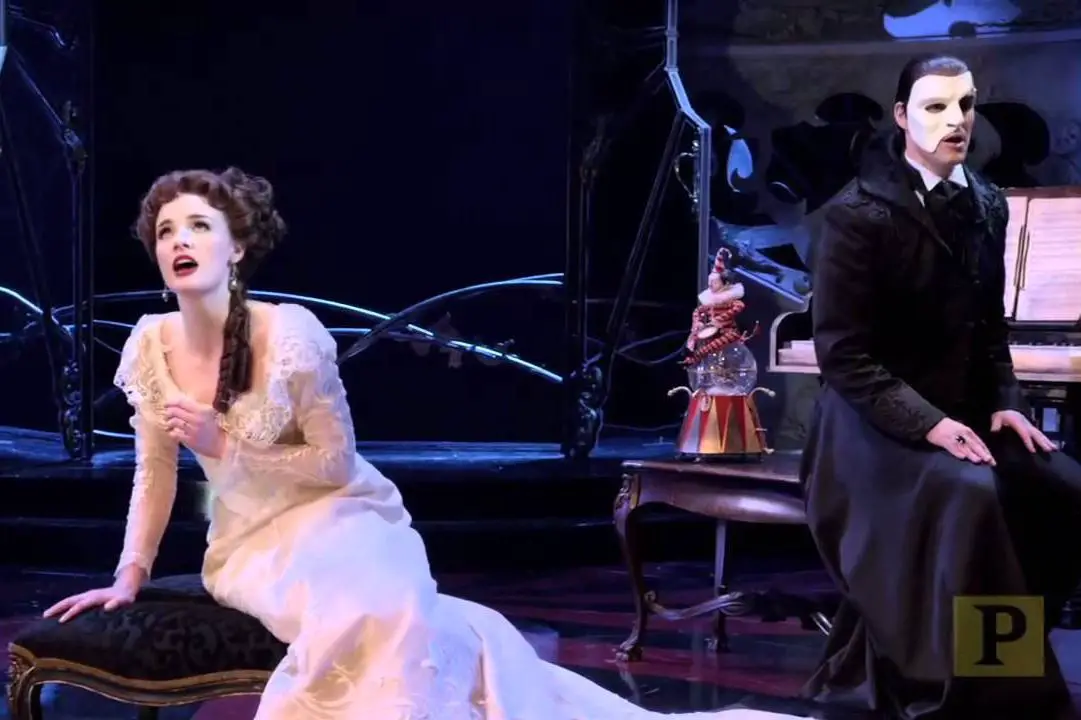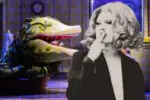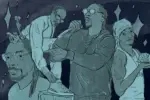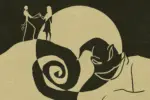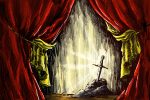No matter how brightly the lights shine on Broadway, there exists a shadow where abandoned and forgotten shows go to hide. In that darkness lies one musical that burned brightly for a short time but died trying to keep its flame alight. Its reason for existence is unclear, and those who remember it only recall it as an oddity. Unbeknownst to most, that very show — “Love Never Dies“— is the official sequel to “The Phantom of the Opera.”
A Stage Set For Success
“The Phantom of the Opera” remains one of the most popular and creative forms of entertainment and storytelling. It ushered in a new golden age of musicals, featuring shows like “Hamilton,” “Beetlejuice,” “Hadestown,” “Natasha, Pierre & The Great Comet of 1812” and even “SpongeBob SquarePants: The Broadway Musical.”
Lord Andrew Lloyd Webber released the sequel to “Phantom” in 2010, yet the average theatergoer has little to no recollection of it. What’s worse, not only has the musical been largely forgotten, but those who recall it remember it as one of the worst musicals of the 21st century. So it seems worth asking why “Love Never Dies” even exists.
It’s all the more confusing when one considers that the 1986 creation “The Phantom of the Opera” is — in many regards — the most successful contemporary musical. It is the longest-running show on the “Great White Way” and third highest-grossing Broadway musical of all time. Regardless of a person’s thoughts on the quality of the original musical, its commercial success is undeniable.
In theory, the success of “Phantom,” as well as “Evita,” “Jesus Christ Superstar” and “Cats,” should have been enough to satiate Webber’s creative ambitions. Apparently not. Webber wanted to write a sequel in the same vein as “Love Never Dies” as early as the late ‘90s. He approached thriller novelist Frederic Forsyth in the hopes of writing a potential sequel, and the resulting “The Phantom of Manhattan” — was so bizarre that it prompted Webber to shelve the idea for years.
The Sequel No One Asked For
It wasn’t until 2007 that “Love Never Dies” reappeared as a possibility. Webber met playwright Ben Elton, who helped him turn Forsyth’s strange story into something Webber could work with. However, in a freak accident, one of Webber’s cats deleted the entire score of the new musical, which delayed it by another three years. Furthermore, the show kept getting reworked and rewritten based on the audiences’ reactions.
It really seems as though the all-powerful forces of the universe doomed the musical to fail. And though Webber’s production may look like a worthless cash grab to some people, for him it was truly a passion project. Why else would he go through multiple writers, write a whole new draft of the score after the cat incident and then rewrite the show as it was being performed? His attempt to create a masterpiece out of “Love Never Dies” is admirable, even if the result is anything but.
A large reason for the sequel’s failure is the fact that “The Phantom of the Opera” is already a well-contained story. The Phantom is an emotionally stunted, musically gifted, murderous psychopath who the world had shown no compassion due to his facial deformities. It’s not until the end that his love interest, Christine, shows him an act of kindness by agreeing to stay with him and kissing him out of pity. When someone finally shows him compassion, the Phantom recognizes the evil of his actions and frees Christine, along with her fiancé, Raoul, whom he previously threatened to kill.
In “Love Never Dies,” the Phantom still pines for Christine, seemingly having learned nothing during the 10 years following the first musical. Not only that, but the song “Beneath A Moonless Sky” is a seven-minute retcon in which the Phantom and Christine recall a one-night stand they had after the end of the first show, after which the Phantom left Christine.
If that wasn’t enough, Christine states that despite the Phantom’s past murders, she still would’ve left her fiancé for him. Oh! And that one night stand resulted in a child, Gustave, who the Phantom didn’t even know was his until years later.
Christine’s husband, Raoul, is now a gambling drunk who has driven his family into poverty and doesn’t care about his child. So, Christine, who seems to lack any real agency or common sense, must now choose between a neglectful husband or a psychopath.
This was the outcome of countless rewrites, both in production and during performance, and yet it’s no more impressive than “Twilight” fan fiction. It sacrifices what made “The Phantom of the Opera” so good in the first place for juicy romantic drama. And we haven’t even discussed the other characters’ confusing motivations for siding with the Phantom, the disturbing undertones of the song “The Beauty Underneath” or the sloppily pasted ending in which the Phantom poorly negotiates a hostage crisis.
A Shadow Legacy
This show is a complete mess…and yet, it’s so much fun. “Love Never Dies” is almost like watching Tommy Wiseau’s “The Room”; the experience is so bewildering that its atrocity is almost hypnotic; it’s impossible to not laugh. And for what it’s worth, the costumes and set design are breathtaking, creating some very compelling visuals onstage. Viewers may question some of the narrative composition, as well as the directorial choices, but that doesn’t mean they won’t enjoy themselves.
It’s upsetting, however, that the work Webber toiled over for years has either been forgotten or remembered as a joke. Even in his best efforts to make the unsalvageable, pointless idea of a story somehow work, he ends up making one of the worst musicals ever. One can only hope that someone will happen upon this freak show hiding in the darkness and be shown the strange, twisted beauty underneath.


